Proposal to strictly prohibit the use of AI to spread false, fake, and fraudulent information
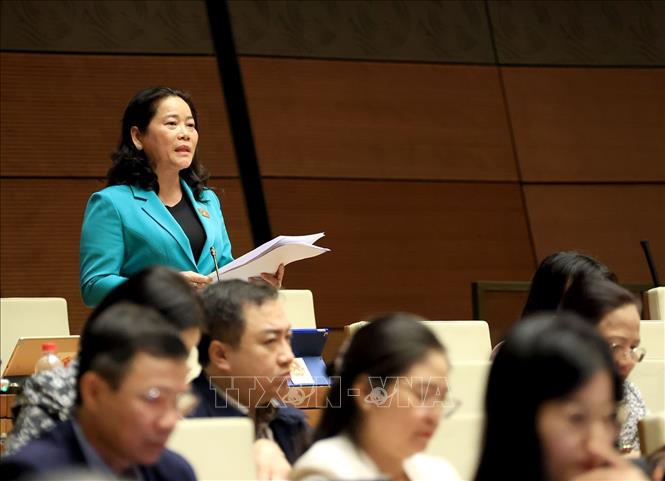
Delegates said that the draft Law on Cyber Security was built on the basis of merging the Law on Cyber Security and the Law on Network Information Security, clearly demonstrating the efforts of the Drafting Committee in perfecting the legal framework and protecting the national cyberspace. Timely updating and supplementing violations is necessary to overcome legal gaps, protect people and strengthen trust in the digital technology environment.
During the discussion on the draft Law on Cyber Security, many National Assembly deputies proposed adding to the draft law a content prohibiting the use of artificial intelligence (AI) to create, edit and spread false information, fake identities to slander, defraud, infringe upon the legitimate rights of people or cause harm to national security and social order and safety.
Delegate Le Thi Thanh Lam (Can Tho) cited the case of a person impersonating a government agency and asking a 75-year-old woman in Da Nang to transfer all her savings or the case of a farmer in Phu Tho transferring all the money from selling a buffalo to a bank account, showing that high-tech criminals are taking full advantage of the lack of cyber security skills. According to the delegate, although some cases have been promptly stopped by the authorities, the trend of abusing AI to personalize fraudulent behavior is increasing.
Therefore, the delegate proposed that in Article 9 - Prohibited acts on cybersecurity, it is necessary to add provisions prohibiting the use of AI to fake faces, voices and other fake technologies to impersonate organizations and individuals to defraud, distort or confuse, infringe upon the rights and legitimate interests of people.
Also giving his opinion on prohibited acts, delegate Ha Anh Phuong (Phu Tho) assessed that expanding the list of acts is necessary but noted that it is necessary to clarify the criteria for determining "false information causing damage in the economic field" to distinguish between legal market analysis and forecasting activities and acts of spreading false information to manipulate and disrupt the market.
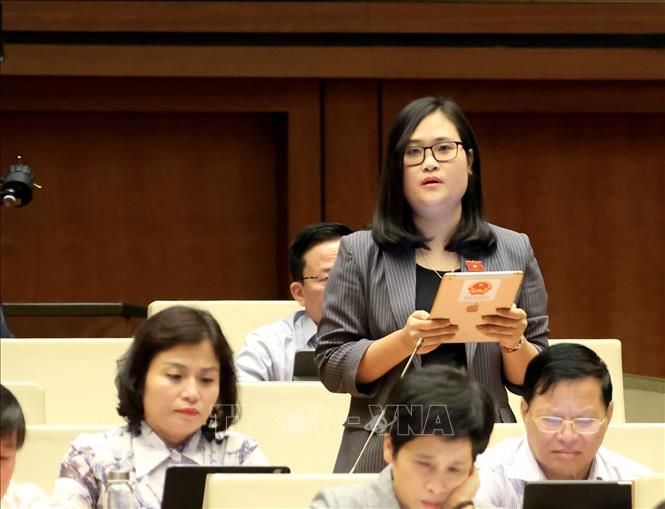
Regarding the prevention of child abuse in cyberspace, delegates said that this provision is important. However, the draft needs to complete the criteria for determining harmful content for children to avoid inconsistent application; supplement the principle of protecting personal data and privacy when applying technical measures; and stratify compliance obligations according to the level of risk and platform scale, to avoid creating a burden on small services or educational - community platforms.
Regarding the request to prevent and remove violating information, delegates emphasized the need for an independent monitoring mechanism and the right of organizations and individuals to complain and sue to ensure transparency and avoid abuse of power in implementation.
Delegate Ha Anh Phuong emphasized that the completion of the draft needs to ensure harmony between the requirements of protecting national cybersecurity and the legitimate rights of organizations and individuals, contributing to building a safe, transparent digital environment and in line with the development trend of the digital economy.
At the meeting, Minister of Public Security Luong Tam Quang explained and clarified the opinions of delegates on the draft Law on Cyber Security. Minister of Public Security Luong Tam Quang said that the draft law was built on the basis of merging two current laws: the 2018 Law on Cyber Security and the 2015 Law on Network Information Security.
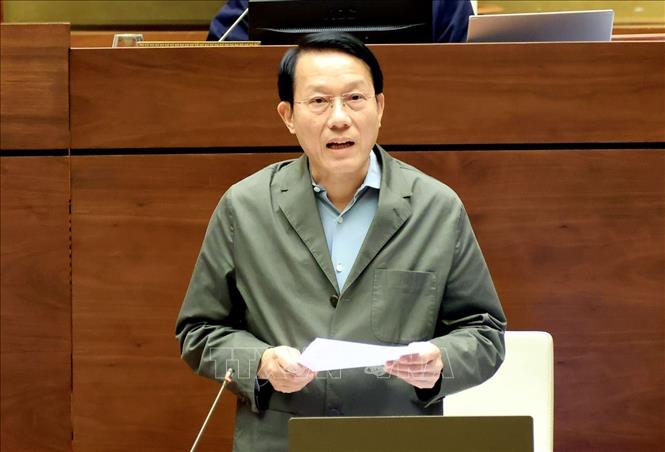
The Minister of Public Security emphasized that in the digital age, no country, organization or business can ensure cyber security on its own. Therefore, there needs to be a unified coordination mechanism where all forces share information and respond to incidents.
Over the past year, Vietnam has proactively promoted the International Convention on Cybercrime Prevention and Control, which was adopted by the United Nations and signed in Hanoi.
This draft law continues to internalize the provisions of the United Nations Convention, and at the same time assigns the Government Cipher Committee to assist the Ministry of National Defense in state management of civil cryptography, while the Ministry of Public Security will detail the management of cybersecurity products and services and encryption to protect state secrets.
The Ministry of Public Security is also developing national technical standards and regulations on cyber security, guiding organizations and enterprises to protect important information systems, and closely coordinating with the Ministry of National Defense to protect national cyberspace.
Tighter regulations to prevent abuse of secret stamping
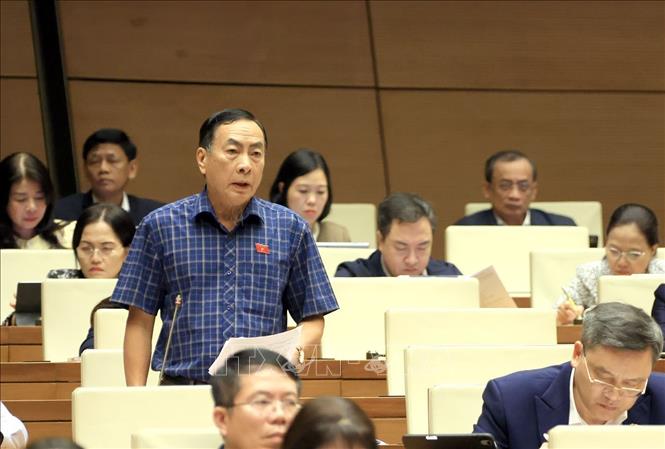
Discussing the Draft Law on Protection of State Secrets (amended), delegates highly agreed with the Government's initiative to submit to the National Assembly for consideration, amendment and supplementation of the Law on Protection of State Secrets in order to promptly institutionalize the viewpoints and policies of the Party and State on administrative reform as well as overcome the shortcomings and limitations identified in the implementation of the current Law on Protection of State Secrets. The draft law has new and progressive points, especially in simplifying administrative procedures.
Regarding the principles of using and protecting state secrets, delegate Pham Van Hoa (Dong Thap) said that currently, state secrets are divided into 3 levels: top secret, secret and secret. Clearly defining these 3 levels is necessary to protect documents and information related to national security, social order and safety, socio-economics and in all fields.
However, according to delegate Pham Van Hoa, the law needs to be stricter to prevent the abuse of the secret stamp. It is necessary to clearly define the responsibilities of the heads of agencies and units in determining and approving the level of confidentiality, and at the same time have a mechanism for inspection, supervision, reminders and appropriate sanctions to avoid abuse.
From there, the delegates suggested that it is necessary to add a guiding principle in the draft law on the scope of state secrets that must be regularly reviewed and adjusted to minimize, to create favorable conditions for information disclosure and digital transformation. This principle will create a legal basis for agencies to proactively and seriously carry out the declassification of outdated information or information that no longer needs to be protected.
Source: https://baotintuc.vn/thoi-su/de-xuat-bo-sung-day-du-cac-hanh-vi-bi-nghiem-cam-ve-an-ninh-mang-20251107195602675.htm







![[Photo] Da Nang: Hundreds of people join hands to clean up a vital tourist route after storm No. 13](https://vphoto.vietnam.vn/thumb/1200x675/vietnam/resource/IMAGE/2025/11/07/1762491638903_image-3-1353-jpg.webp)




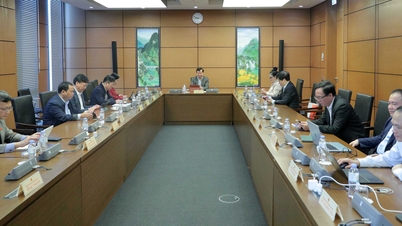

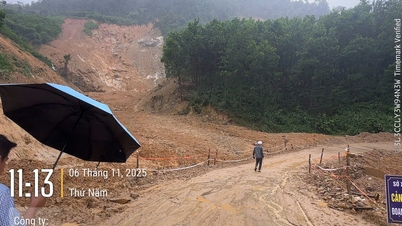
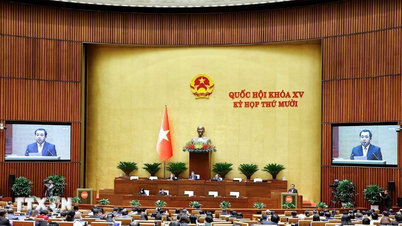

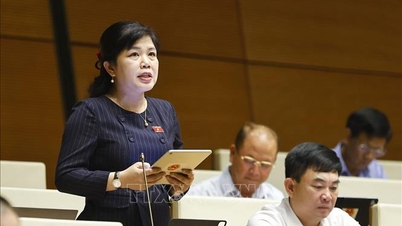













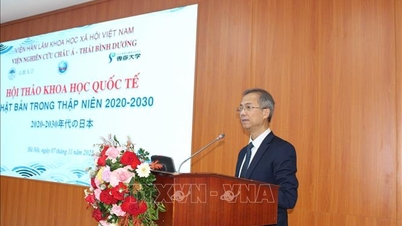


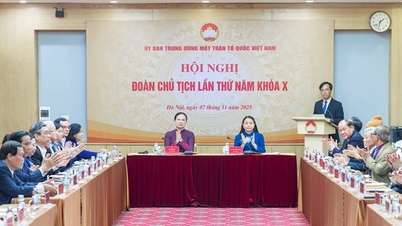
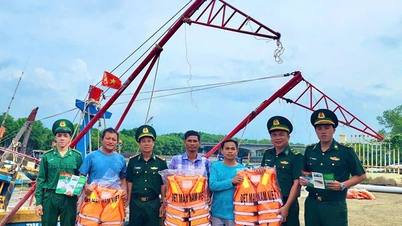
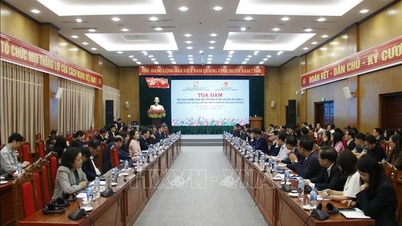
















































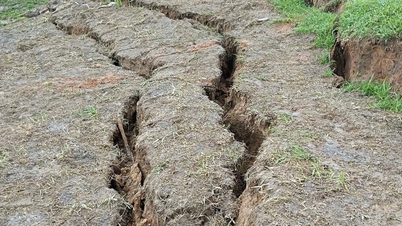
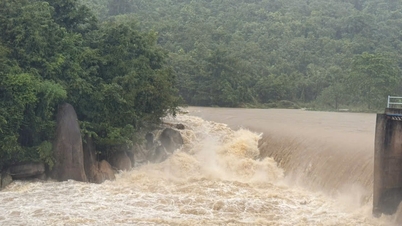
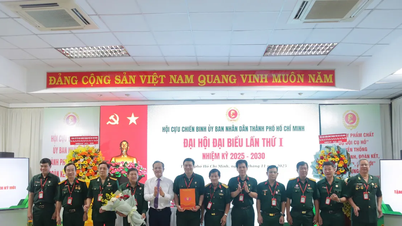
















Comment (0)